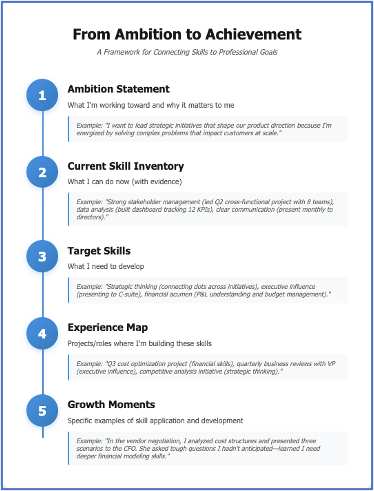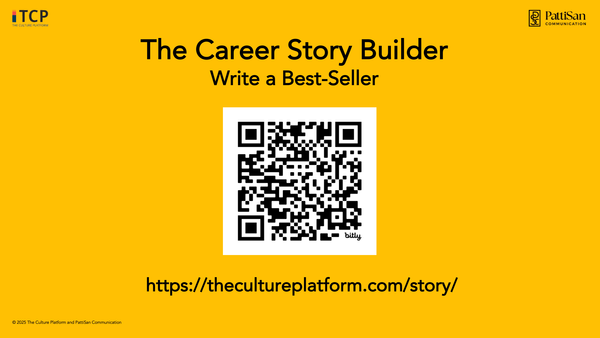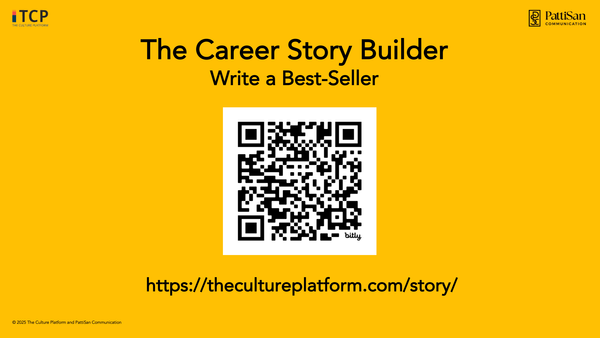A Call to Arms: Mentoring
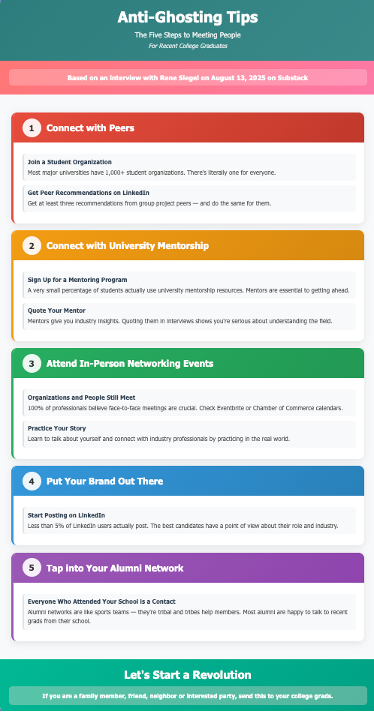
I’m calling for a mentoring revolution in the age of AI.
When I was working for former Cisco CEO John Chambers, his calendar would be filled with meetings with first-time CEOs. I often found myself on their calendars, as John wanted me to share Cisco best practices. It’s how I met the CEOs of Box, eBay and Bank of America and so many others.
John Chambers was part of an unspoken network of CEOs mentoring each other. “Pay it forward, Ron,” John would tell me. “This is what giving back looks like.”
As much as I love helping CEOs, they get enough help.
In the age of AI, we know the corporate ladder — and the career predictability it provided — is vaporizing before our very eyes. For boomers like me, the uncertainties AI is creating about career-pathing for millennials and gen-z are unlike anything we boomers experienced in our professional lifetimes.
It’s why I’m calling for a mentoring revolution.
If there’s one theme I keep hearing about succeeding in this moment in time, it’s to bet more and more on what makes us human. At the center of our humanity is our ability to help others.
So I called two people I know with long track records in mentoring, and over the next two weeks I’m sharing their perspectives on how to mentor — and to spread the word and share approaches.
This week I’m focusing on mentoring for early-in-career and recent college graduates. I was lucky to reconnect with Rene Siegel, a friend and industry colleague to help with the first newsletter. Rene has long been the leading voice on mentoring opportunities for recent grads here in Silicon Valley.
Next week, I’ll be focusing on mentoring for people who already have jobs or are in transition from one role to another. I’ll be sharing the views and insights of another friend and colleague, Erin Bergamo Tacy. Erin is also one of the tech industry’s leading voices on why mentorship matters, and I look forward to sharing what she told me is happening right now in mentoring.
I’m grateful to both for their hands-on nature, directly helping people, and for sharing their perspectives with the readers of Managing in the Age of Uncertainty.
Meet the “Chief ReneVator”
I like people who like to have fun — Rene calls herself the “Chief ReneVator” to help college grades and working professionals people tell their stories.
And Rene has some serious street cred with recent college grads and preparing them to get ready for the outside world. She’s an advisory board member to the Lucas College and Graduate School of Business at San Jose State University — where she founded and chairs the school’s Career Advisory Council, including hands-on mentoring with graduating students.
I ask Rene to summarize the purpose of mentoring for college grads.
Rene tells me right away that one universal truth still exists in the age of AI: “This my sound trite, but it still is a ‘who you know’ market,” she says. “
Take Free Manager Self-Assessment
The More Things Change, the More they Don’t
“AI can change the keywords in your resume, but it can’t introduce you to people,” Rene gets right to the point.
I don’t know why I expected to hear something different, maybe because of social communications platforms; that somehow, college grads were better “connected” than boomers.
According to Rene, it’s actual the opposite. What boomers called “networking” turns out to be intimidating to this current generation. “As socially adept as college grads are online, our biggest mentoring challenge is students ghosting professionals.”
It’s interesting, because Erin is also part of an advisory group at UC, Santa Barbara. She told me the exact same thing. Which is another way of saying, this is a real opportunity for those out there who are motivated to stand out.
Anti-Ghosting Tips: The Five Steps to Meeting People
Rene’s a ball of fire on this topic. She didn’t call this the “anti-ghosting formula” — I had fun with the words. But if you are the parent, aunt, uncle, grandparent, older sibling or just a friend, I strongly urge you to send Rene’s five steps to any recent or soon-to-be graduate.
It’s a scary time to be looking for a job, for sure, but each of these five steps increase the odds of meeting people in the very industries you want to work in.
1.Connect with Peers
Join a student organization at your school. “There’s no shortage of these organizations on campus,” Rene says. “There are literally hundreds of them.” Ok, I’m going all boomer here, but I had no idea that most major universities typically have more than 1,000 student organizations.
Get peer recommendations on LinkedIn. “Every student is part of a group project at some point,” Rene tells me. “Get at least three recommendations on your LinkedIn profile from your group peers — and do the same for them.” Seriously good idea.
2.Connect with University Mentorship programs
Sign up for a mentoring program. “A very small percentage of students actually use the mentorship resources at a university,” Rene points out. This seems obvious, but apparently it’s not. If we’re going to have a mentoring revolution, it’s up to us who are actually out there in the workforce to point out to recent grads that mentors are essential to getting ahead.
Quote your mentor. Finding a job is a competitive activity in reality; it’s you against everyone else. Quoting your mentor in a job interview is an undeniable advantage in showing how serious a graduate is at understanding an industry. “Mentors give you a glimpse into an industry,” Rene says. “So much of what students say about themselves is one-sided, only about themselves.”
3.Attend In-Person Networking Events
Organizations and people still meet. Since the pandemic, there’s actually been a return to networking events. Here’s one thing professionals agree on: 100% believe that face-to-face meetings are crucial to keeping business relationships. Rene’s advice: check your local Eventbrite calendar or Chamber of Commerce calendar. There’s literally a meeting of some sort for everybody.
Practice your story. Understanding how to talk about yourself and connecting to an industry professional can only be done by practicing in the real world. If you want to learn how to learn the language of a market, get out and talk to people working in the industry.
4.Put Your Brand Out There
Less than 5% of LinkedIn actually posts. When Rene told me this, I was blown away. The best candidates for job roles have a point of view about the role and how to succeed in it. If the total number is less than 5% posting, the number is even smaller for new college grads. If you don’t have a point of view, see #2 and start talking to a mentor about it.
5.Tap into Your Alumni Network
Everyone who attended your school is a possible contact. When Rene told me this, I knew instinctively it was true. I’m more than happy to talk to a Fairfield or UNC grad if they reach out. I want all recent college grads to know that nearly everyone I know feels the same way. Alumni networks are like sports teams: they are tribal and tribes help members of the tribe.
“Everyone is starting from the same place,” Rene concludes. That’s right. These 5 “Anti-Ghosting Tips” can give any recent college grad a way to get ahead.
So back to my call to action: if you are a family member, friend, neighbor or interested party, send this infographic to your college grads. There is a formula to stand out. Let’s start a ReneVator revolution!
Take Free Manager Self-Assessment
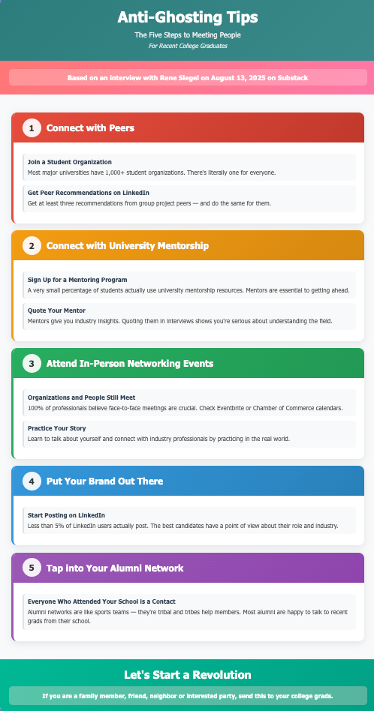
Manager Thought of the Week
"Every week, make contact with someone in your Cisco network.”
The first call I did after I retired from Cisco was to Don Proctor, a former senior engineering executive at Cisco. He told me Cisco people would respond — and they did. I’ve probably talked to more than 200 Cisco alum these past 5 years. It’s been amazing. People are ready to help and be supportive. All you have to do is ask.


